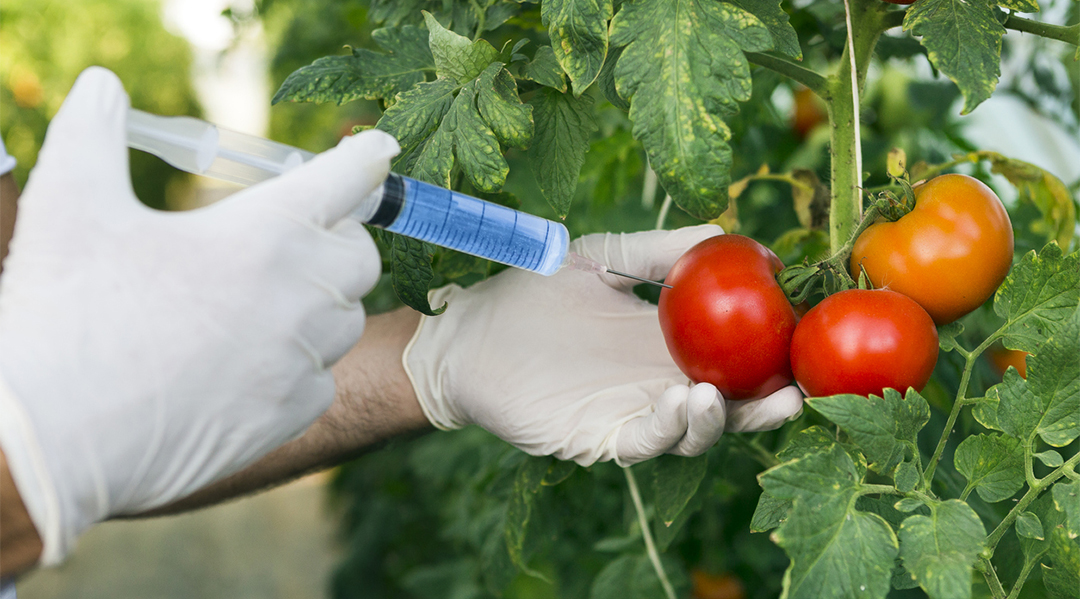GMO Testing in Tomato (Delayed Ripening Events)
Genetically Modified Organism (GMO) testing is a critical process that ensures food safety and compliance with regulations. In the case of tomatoes, which are one of the most widely consumed fruits globally, GMO testing can help identify whether delayed ripening events have been engineered into the plant's genome. This service specifically targets tomatoes to ensure they meet stringent quality standards without unintended modifications. Our laboratory employs advanced methodologies that provide accurate and reliable results, ensuring compliance with international standards.
The process begins with specimen preparation where the tomato samples are carefully selected based on their genetic profile. The DNA is extracted using standardized protocols that adhere to ISO and ASTM guidelines. Once isolated, the DNA undergoes a series of analyses aimed at detecting any foreign genetic material introduced through GMO techniques. This includes PCR (Polymerase Chain Reaction) amplification followed by gel electrophoresis or real-time qPCR for quantification.
For tomatoes with delayed ripening events, our tests focus on identifying the specific gene that codes for this trait. By comparing the extracted DNA against known reference sequences from non-GMO varieties and those containing the desired genetic modification, we can determine if any unauthorized modifications have been made. The accuracy of these tests is crucial as even minor changes could lead to significant deviations in nutritional content or agricultural performance.
Our team uses state-of-the-art equipment such as Next Generation Sequencers (NGS) which offer high-throughput capabilities for comprehensive analysis across multiple samples simultaneously. This not only increases efficiency but also enhances the reliability of our findings. Additionally, we utilize bioinformatics tools to interpret complex data sets generated during the testing process.
Compliance with regulatory bodies like USDA and EU ensures that all products are safe for consumption while meeting market expectations regarding authenticity and integrity. Consumers trust brands that comply strictly with these regulations; hence accurate GMO identification is essential in maintaining consumer confidence.
The importance of this service cannot be overstated, especially considering the increasing public concern about genetically modified foods. By providing transparent information about whether a product contains GMOs or exhibits unusual characteristics like delayed ripening events, we contribute to an informed marketplace where both producers and consumers make educated choices.
Frequently Asked Questions
Why Choose This Test
- Precision - Our tests are highly accurate due to the use of cutting-edge technology.
- Rigor - Every step in our process is meticulously documented and verified.
- Regulatory Compliance - Ensures adherence to international standards like ISO and ASTM.
The demand for GMO-free produce continues to grow, driven by consumer preferences and regulatory requirements. Our service plays a vital role in meeting these demands while maintaining the integrity of agricultural products. By choosing our GMO testing service, you can rest assured that your tomatoes are free from unintended genetic modifications, thus preserving their natural qualities.
Customer Impact and Satisfaction
Accurate GMO identification benefits customers by ensuring they receive authentic produce. This enhances brand reputation and builds trust with consumers who value transparency in food production practices. Additionally, our service helps companies stay ahead of regulatory changes related to genetically modified organisms.
We strive to exceed customer expectations through exceptional service delivery. From prompt sample submission acceptance to timely report generation, we ensure every aspect of the testing process is efficient yet thorough. Our experienced staff members are dedicated to providing accurate results that meet or surpass industry benchmarks.
Environmental and Sustainability Contributions
Incorporating GMO testing into agricultural practices contributes positively towards environmental sustainability by promoting responsible use of biotechnology. By identifying genetically modified organisms early in their lifecycle, farmers can make informed decisions about cultivation methods that minimize ecological impact.
- Saves resources - Identifying and eliminating unnecessary genetic modifications reduces waste associated with non-productive crops.
- Enhances biodiversity - Ensuring only appropriate modifications are made supports overall ecosystem health.
GMO testing in tomatoes specifically addresses the issue of delayed ripening, which can have implications for storage conditions and distribution logistics. Through precise identification, we assist in optimizing these aspects without compromising product quality or nutritional value.





